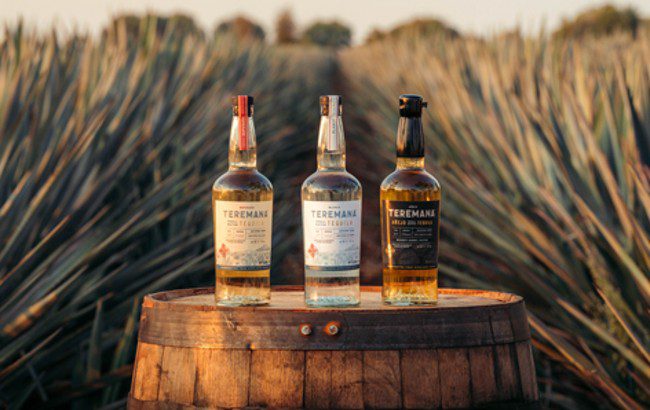Is the Middle East the next major Tequila market?
By Nicola CarruthersThe Middle East region offers “significant potential” for premiumisation in spirits, particularly in the UAE, led by categories such as whisky, vodka and Tequila.

According to Russell Menezes, IWSR research director for the Middle East and Africa (MEA), there is a “clear opportunity” for premium spirits brands to establish themselves in the market, where the majority of volume consumption still occurs within the standard and value segments.
Menezes notes that categories such as whisky, vodka and Tequila are experiencing growth.
“This trend has been largely driven by the influx of expatriates, which has expanded the consumer base and introduced new preferences,” he says.
Menezes also points outs that consumers in the Middle East are willing to experiment with new brands as long as the “pricing remains competitive within the standard segment”.
He adds: “Brands must strike a balance between quality and affordability to gain traction.”
IWSR data showed that total spirits volumes rose by 1% in the region last year and is expected to increase at a compound annual growth rate (CAGR) of 2% between 2024 and 2029.
Whisky remains the biggest category in the Middle East, followed by vodka, aniseed (such as arak, ouzo and raki), gin and brandy.
Whisky volumes were stagnant last year, while aniseed spirits dipped by 1% in 2024 and brandy fell by 2%. Meanwhile vodka and gin both saw an uptick of 1%.
Apart from vodka (which is forecast to be flat), these four categories are expected to grow their volumes slightly over the next five years.
Tequila rose by 16% from a small base last year and is forecast to increase by 3% over the next five years. The category holds a 2% share of total spirits in the region.
Tequila’s increasing presence in the Middle East was evident at the inaugural Gulf Bar Show this year, with the likes of Casa Maestri, Don Julio, Mijenta, Komos, Barajas, Teremana and Patrón exhibiting.
Over the past year, Teremana (the brand founded by actor Dwayne ‘The Rock’ Johnson) has entered the Middle East market, alongside Tequila Enemigo.
Dubai’s cocktail scene
Many brands have targeted the UAE, particularly Dubai, as the area with the most opportunity for growth. Dubai has become a destination for cocktails with its sky-high venues. It was also the location for this year’s Gulf Bar Show, which will return to the city next year on 7-8 April.
The show’s organiser, Hugo Goncalves, says: “The UAE is a very exciting market, especially Dubai, and you have probably some of the best operators in the world present there. The bar scene is evolving day to day, which is great to see.”
The ‘world’s most expensive cocktail’ was also created at restaurant and cocktail bar Nahaté in Dubai in April, made with a special edition Patrón Tequila blend.
Two Dubai venues (La Petite Maison and Mimi Kakushi) were also nominated for Best International Restaurant Bar at this year’s Spirited Awards.
In terms of trends across the MEA, Menezes notes: “RTDs are following trends in spirits, with key spirit brands getting involved. Tequila is growing and is riding the wave across all price bands in both regions. Middle East has a big affinity to blended and malt Scotches with significant volume consumption.”
South Africa was also pinpointed as a market with a “strong appetite for spirits” and “growing potential for premiumisation” as consumers seek to “maintain a sophisticated social image”.
“Categories such as Cognac, brandy, and Tequila resonate particularly well in this market, while gin continues to maintain a solid presence,” Menezes says. “Nigeria is another key market with a notable demand for spirits. Smaller format packaging performs especially well, offering convenience and a perception of affordability that appeals to a broad consumer base.”
Challenges in the region
Due to strong cultural and religious influences, the volume of alcohol consumed in the Middle East tends to be lower than other markets. Sales tend to be limited to licensed venues such as bars and duty free stores.
Saudi Arabia and Kuwait are the only Gulf countries with a ban on the consumption and sale of alcohol, while alcohol is tightly regulated in markets such as the UAE, Bahrain and Quatar.
“Alcohol is only available through diplomatic channels (Saudi Arabia opened its first alcohol retail store for diplomats only),” Menezes notes.
“Many countries in the region, especially those with strong Islamic governance, have strict regulations or outright bans on the sale and consumption of alcohol. This limits market access and distribution channels significantly.
“Even in more liberal markets like the UAE, marketing and branding must be carefully tailored to respect local norms and avoid backlash.”
Menezes notes that there are restrictions on advertising, packaging, and promotional activities for alcohol. In many countries, alcohol advertising is not allowed on TV, radio, or public billboards.
Goncalves said the main issue for spirits brands is “how to get to the front of distributors and hospitality decision makers”.
The Middle East’s biggest alcohol distributors include Maritime and Mercantile International (MMI) and African + Eastern.
Other challenges in the region include import restrictions, high tariffs and complex licensing requirements, says Menezes, which “can make distribution costly and logistically challenging, especially for new entrants”.
While the on-trade is a “key driver for spirits sales”, Menezes notes that in some markets venues are “limited or heavily regulated, reducing opportunities for brand visibility and consumer engagement”.
Related news
Neurita Tequila names new UK distributor
